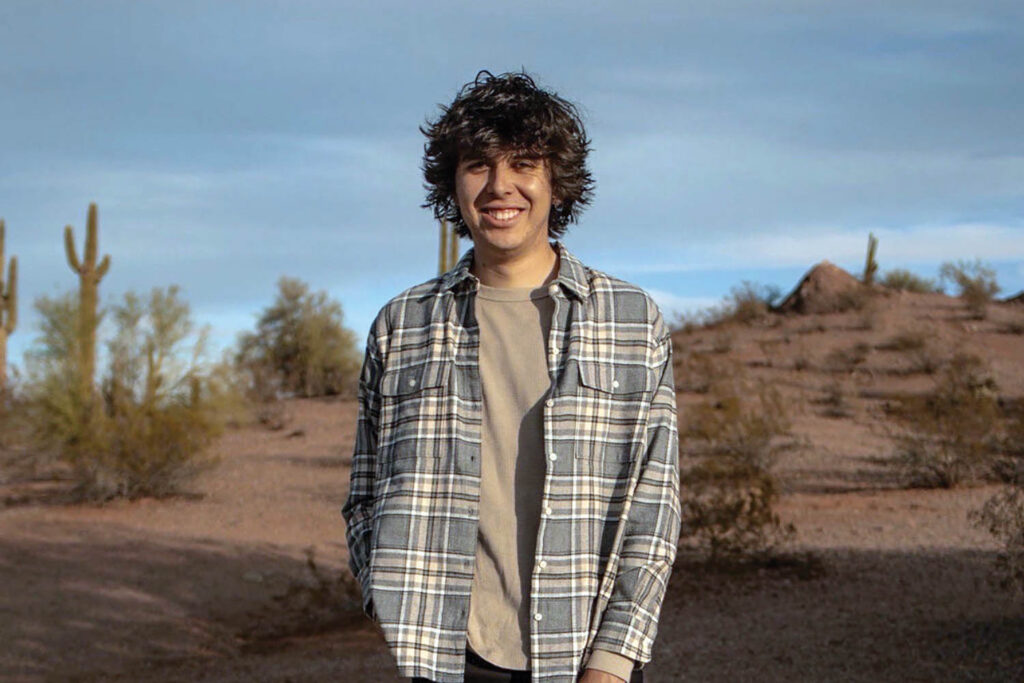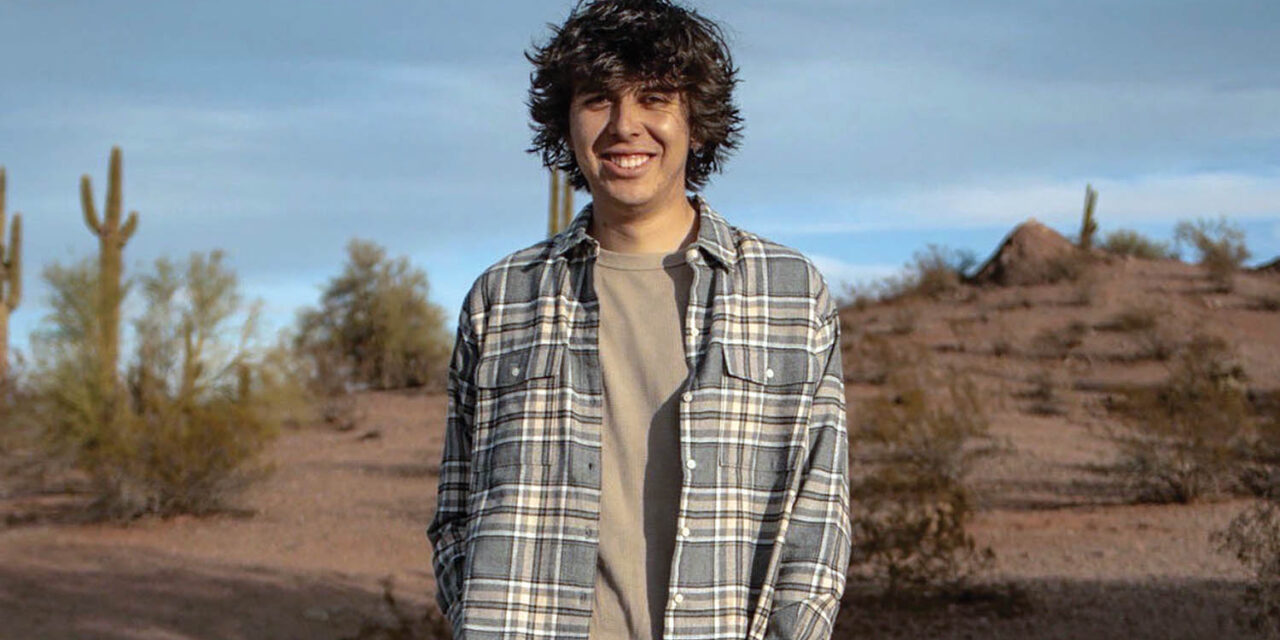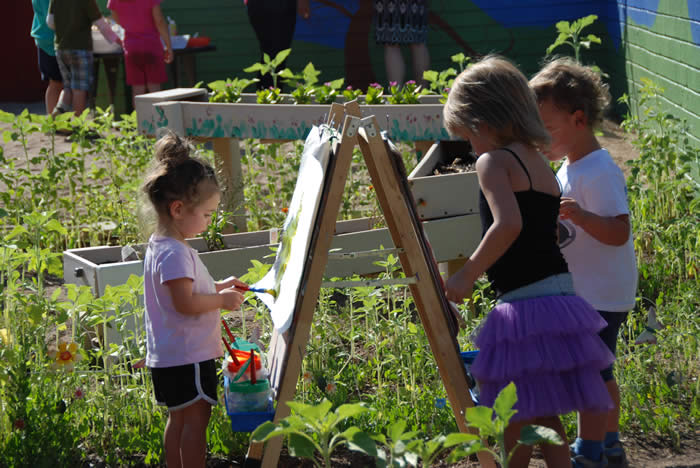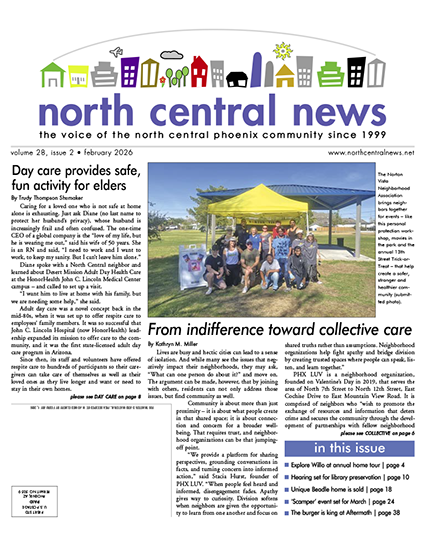
Noah Ayala was an active and busy 17-year-old highschooler who loved football, helping the homeless and biotechnology. However, one pill cost him his life (photo courtesy of the Ayala family).
Eighteen months after losing her teenage son to fentanyl, a local mother is sharing his story to spread awareness.
On March 17, Vanessa Ayala received a call from the police department that her son, Noah Ayala, was found unresponsive and pronounced dead after consuming a pill that contained fentanyl.
Ayala was an active and busy 17-year-old highschooler who loved football, helping the homeless and biotechnology. However, one pill cost him his life.
“I wanted to rush home and be with my son, yet I knew that when I got home, it would validate the horror that my son was no longer here with us,” Ayala said.
The loss the Ayala family went through is something that many Arizona families experience. Lack of education and awareness can oftentimes be the reason families undergo loss due to drug overdoses.
“Unfortunately, I’ve gotten to know a lot of my friends because their kids are dead of fentanyl poisoning,” Stephanie Siete, a local drug outreach educator and Ayala’s friend, said.
She said that this is the sad reality that occurs commonly, as about five Arizonans die daily from opioid-related deaths, according to the Arizona Department of Health Services. Prevention initiatives play a key role in decreasing opioid-related deaths because victims often don’t get the opportunity to learn from opioid intake, because it can kill them. Victims’ families and educators are dedicated to promoting education about drug use, specifically amongst teens for the sake of preventing fatalities.
Ayala’s family has made it their mission to speak out at awareness forums, schools, with politicians and in documentaries. They helped to pass Senate Bill 1622, which added drugs more potent than fentanyl to Arizona’s list of dangerous drugs. They have also attempted to pass “Noah’s Law,” which would enhance the punishment for holding drug dealers accountable. Additionally, her family is currently working to create the “Noah’s Arc of Hope Foundation.”
More initiatives can include funding, activism and discussion amongst peers, adults and teachers to ensure individuals are educated about the risks of drug usage, especially when it comes to mental health and addiction.
At the state level, steps are being taken to address this issue. Governor Katie Hobbs’ office held the Arizona Parents Commission on Drug Education and Prevention on Sept. 17. The commissioners recognized that youth drug usage and overdoses are a rising issue that affects many Arizona families and the need to raise awareness for children’s safety and education. Their purpose in discussing this issue was to identify the need for family and government intervention, potential state reform and child protection solutions to save adolescents’ lives and provide support for victims’ families.
During the meeting, Tori Mundson, the Governor’s Office program administrator presented 26 grantees that received an equally distributed amount of $4.76 million to further aid in promoting prevention statewide.
When some people become involved with drugs, it can feel like an escape and solution. Siete believes people must know there are other alternatives to finding this “escape” than drugs.
That is where mental health awareness becomes a key role, said Shane Watson, a mental health educator and recovery coach who battled with drug addiction himself. Watson said mental health struggles and drug usage are strongly intertwined.
“Their real motivation is to get away from a feeling or to mask a feeling, or to medicate a feeling, and they’re dealing with anxiety and depression,” Watson said, explaining that mental health struggles often propel individuals to engage in drug-use.
The issue can also arise when they aren’t able to access drugs and withdrawal symptoms then trigger anxiety or depression and begin a cycle. Watson said mental health conditions can either drive someone toward drugs or other times their substance use can interfere with their brain chemistry, leading to mental health challenges.
Noah’s story wasn’t just about a death in the family, it was a call for reform so other families don’t lose their Noah. Siete, Ayala and Watson all said that it shouldn’t take a fatality to prompt awareness about this issue. Instead, they said counterfeit pills and drug overdoses is a topic that should be talked about amongst all age groups to prevent drug-related deaths.









































